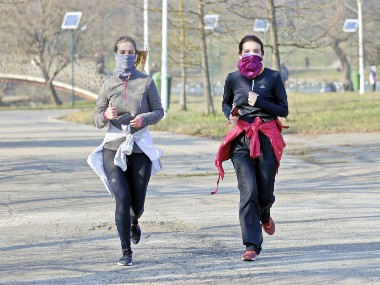Over 2.4 million cases and 166,000 COVID-19 related deaths have now been reported across the globe. Here is are some major developments that occurred over the weekend. [caption id=“attachment_8279881” align=“alignleft” width=“380”]  Representational image. Image by Mircea Iancu from Pixabay.[/caption]
Spain and Italy report lower death tolls
Italy reported the lowest number of deaths in a week whereas Spain reported the lowest figure in nearly a month, with 399 deaths in the last 24 hours. In Spain, total cases have now exceeded 200,000, and deaths have also exceeded 20,000. After April 27, parents will be allowed to take children below the age of 12 out for walks. Further restrictions will remain in place - people are only allowed to go out for essential activities, such as food, work, or medical emergencies. In Italy, residents can’t go beyond 200 meters of their houses unless they have a compelling reason to. The rise in domestic abuse is a cause of concern throughout the country.
Germany, Australia and New Zealand are gradually opening
Germany, which is composed of 16 states, has given local authorities discretion in emerging from the lockdown - with some conditions. While all car and bike dealerships can open, other shops must be smaller than 8,600 square feet or they can’t open yet. Further, citizens must maintain a distance of five feet and still respect physical distancing. One state has even allowed religious congregations to take place. New Zealand will gradually reopen today. Construction will restart, and schools will restart on the 27th of April. Similarly in Australia, schools will be reopened and people will be allowed to go outside to exercise. Earlier, there could be no public gatherings of more than two people - these restrictions will also be lifted.
COVID-19 outbreak in Afghan presidential palace
Ashraf Ghani, Afghanistan’s president, is in self-isolation after over a dozen members of the presidential palace tested positive. President Ghani has himself tested negative. Concerningly, it is believed that a document that arrived in the office caused the outbreak. Afghanistan has only registered about 1,000 cases but a dearth of testing kits has stalled testing in the capital, Kabul. Further, an exodus of Afghani workers from Iran has also triggered fears of a much larger outbreak.
China fires back at the call to investigate origins of the virus
The Australian foreign secretary, Marise Payne, said in an interview on Sunday that the origins of the virus should be investigated. She said that recent developments have inspired little confidence in China’s transparency. This comes after investigative reportage has unearthed a tardy, repressive initial response. The Chinese foreign secretary, Geng Shuang said he had grave concerns about the comments made by Australia and that they were an insult to the people of China. Studies conducted so far have shown, and experts agree overwhelmingly, that the virus originated in a wet market in Wuhan.
Olympics unlikely to happen even in 2021
Professor Kentaro Iwata, a public health expert, said yesterday that it was unlikely the Olympics would take place next year. Even if Japan has the virus under control, it is unlikely that the disease would be contained all over the world, making the event unlikely. The International Olympic Committee (IOC) has said that it is too early to comment on next year yet. For more information, read our article on Domestic violence during COVID-19_._ Health articles in Firstpost are written by myUpchar.com, India’s first and biggest resource for verified medical information. At myUpchar, researchers and journalists work with doctors to bring you information on all things health.


)

)
)
)
)
)
)
)
)



